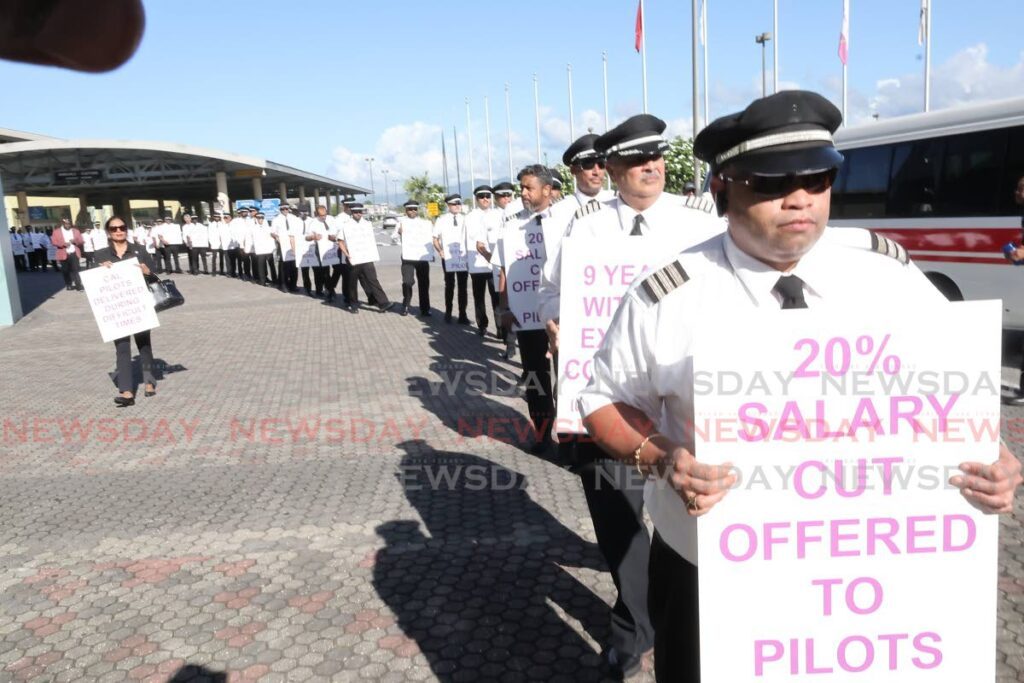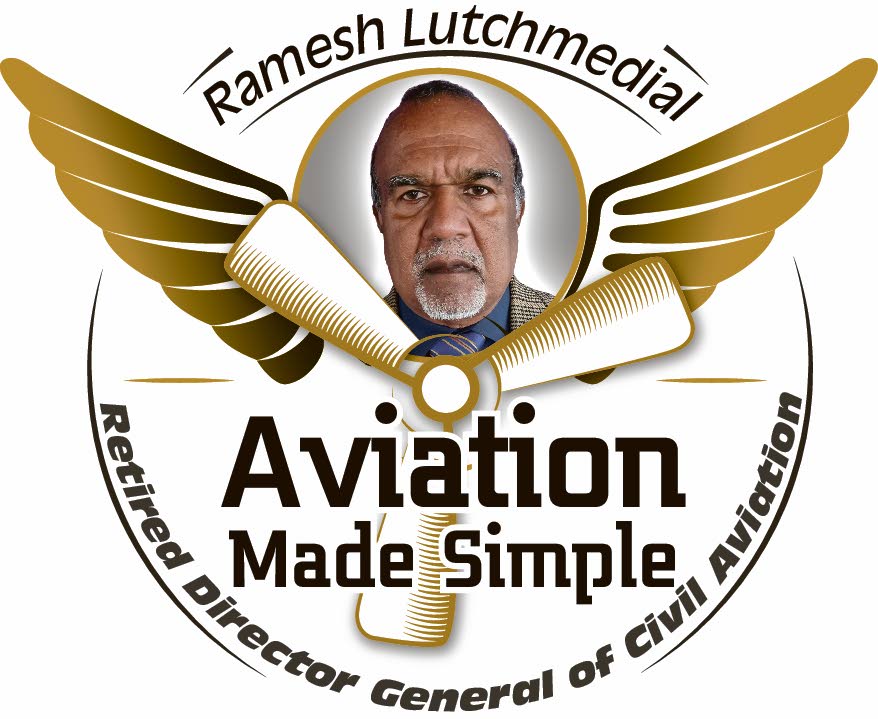Resolving the CAL-TTALPA impasse

It was jaw-dropping for the public to see off-duty uniformed Caribbean Airlines (CAL) pilots taking part in a peaceful placard protest at the check-in areas of Piarco International Airport on the morning of October 3, over several matters, including salary negotiations.
This impasse has been ongoing for quite some time and is multidimensional, with trust and communication at the forefront.
The industrial-relations climate between CAL and the TT Airline Pilots Association (TTALPA) – the union that represents pilots in TT – is worrisome and should not be allowed to continue. It is counterproductive to the achievement of CAL’s business objectives.
Good industrial relations practices require the employer and union to meet and treat each other in good faith, devoid of hidden agendas.
CAL and TTALPA are two professional organisations that should be working together to achieve the economic viability of the airline.
The airline industry is global, dynamic, highly capital intensive, hyper-competitive and most importantly, highly safety-sensitive.
Pilots are highly trained and qualified professionals who are responsible for safely operating an aircraft from a departure airport to a destination airport.
The flames of discord were fuelled when pilots were disingenuously likened to glorified bus drivers.
During an inflight emergency, pilots’ skills, training, cognition and experience are critical in saving lives, as seen in numerous aircraft accidents, such as those involving United Airlines Mc Donald Douglas DC 10-10 on July 19, 1989 and the Japan Airlines Airbus A350-900 on January 2, 2024.
TTALPA is an autonomous body registered under the Trade Union Act and in accordance with the Industrial Relations Act (IRA). It is certified as the recognised majority union (RMU) for the categories of CAL pilots defined in the bargaining unit.
Among the litany of woes listed on the placards, one read: "Nine years with an expired contract."
The burning question is why this matter, along with the others, was not referred to the Minister of Labour as a trade dispute for resolution, in accordance with the IRA?
TTALPA must recognise that CAL’s management prerogatives are not subject to the collective bargaining process. Among those are the rights to determine its business objectives and practices, to hire, the aircraft types to use, the routes to operate and the frequencies.

CAL pilots are not accountable to TTALPA for the performance of their duties. Pilots are fully subordinate to the authority of CAL’s management, which has a statutory responsibility for ensuring pilots strictly comply with the operating procedures approved by the TTCAA and the regulatory authorities of foreign jurisdictions whose sovereign territory CAL aircraft may operate over or into.
In the event of an untoward occurrence, the relationship between the pilots and CAL’s management will come under very intense scrutiny by a court of inquiry.
It’s noteworthy that CAL is the holder of the air operators certificate (AOC), and not TTALPA. CAL management will ultimately be held accountable.
Clearly, over the past few years, there has been an erosion of trust between TTALPA and CAL, as evidenced by the protest.
Industrial relations are now seemingly being conducted in the public domain. An example is what occurred on October 3, when TTALPA issued a press release about the placard protest, followed by a CAL press release rebutting some of TTALPA’s claims, and then another rebuttal from TTALPA.
TTALPA's assertion that CAL pilots' salaries are lower than those of their regional counterparts using nominal values holds very little water.
When the purchasing-power parity (PPP) principle is applied, CAL pilots' salaries more than likely have more purchasing power than those of their regional counterparts.
On the other hand, owing to the uniqueness of the airline industry, the ministerial committee that monitors remuneration arrangements should delink CAL from the wider public sector regarding salary increases and other benefits for all CAL employees. Instead, salaries paid to the employees of the TTCAA and the AATT should be used as the benchmark.
Another cause for concern is the level of communication between CAL and TTALPA.
BWIA held regular monthly consultation meetings with the union. The agenda for these meetings included such matters as productivity, wastage, training, expansion plans, health and safety issues and the general exchange of information.
CAL should take the initiative and engage the union in regular consultations.
When information is shared, it eliminates the mischief of misinformation and engenders trust, which goes a long way in maintaining harmonious working relationships with the unions.
In 1994, the four RMUs, including TTALPA, which represented BWIA employees, vehemently opposed the Government's plans to privatise BWIA with the Acker Group as the lead investor.
Their concerns mainly had to do with Acker’s stewardship at Pan Am. The RMUs were required to agree to certain terms that were conditions precedent to the finalisation of the privatisation agreement.
Sensing that he was facing a show-stopper, Acker hosted a dinner at the Hilton Trinidad for the executive members of the four RMUs. It was a very open session and the union executives were able to directly and freely engage in dialogue with Acker and his group on a one-to-one basis.
At the dinner, Acker announced that all employees would receive a ten per cent sign-on bonus with the new company. In addition, the employees would be given 15 per cent shares in the new company and another ten per cent through an employee stock ownership plan (ESOP).
At the end of it all, the RMUs bought into the Acker plan and two nominees of the RMUs were appointed to the board of the privatised BWIA.
CAL should give serious consideration to other non-cash incentives that will mould all its employees into a cohesive and effective workforce.
One such incentive is the establishment of an ESOP. As the airline achieves operational profitability, employees will be issued with shares in the company.
Pilots should be treated with the dignity they deserve. Pilots are public faces of the airline and when things appear not to be right in the cockpit, the travelling public becomes apprehensive.
CAL is on the cusp of profitability and requires all hands on deck. Its most valued assets are its human resources, which cannot be quantified in any balance sheet.
Finally, all parties must engage in responsible industrial-relations practices to bring an end to this stalemate through meaningful dialogue and not via media releases.

Comments
"Resolving the CAL-TTALPA impasse"